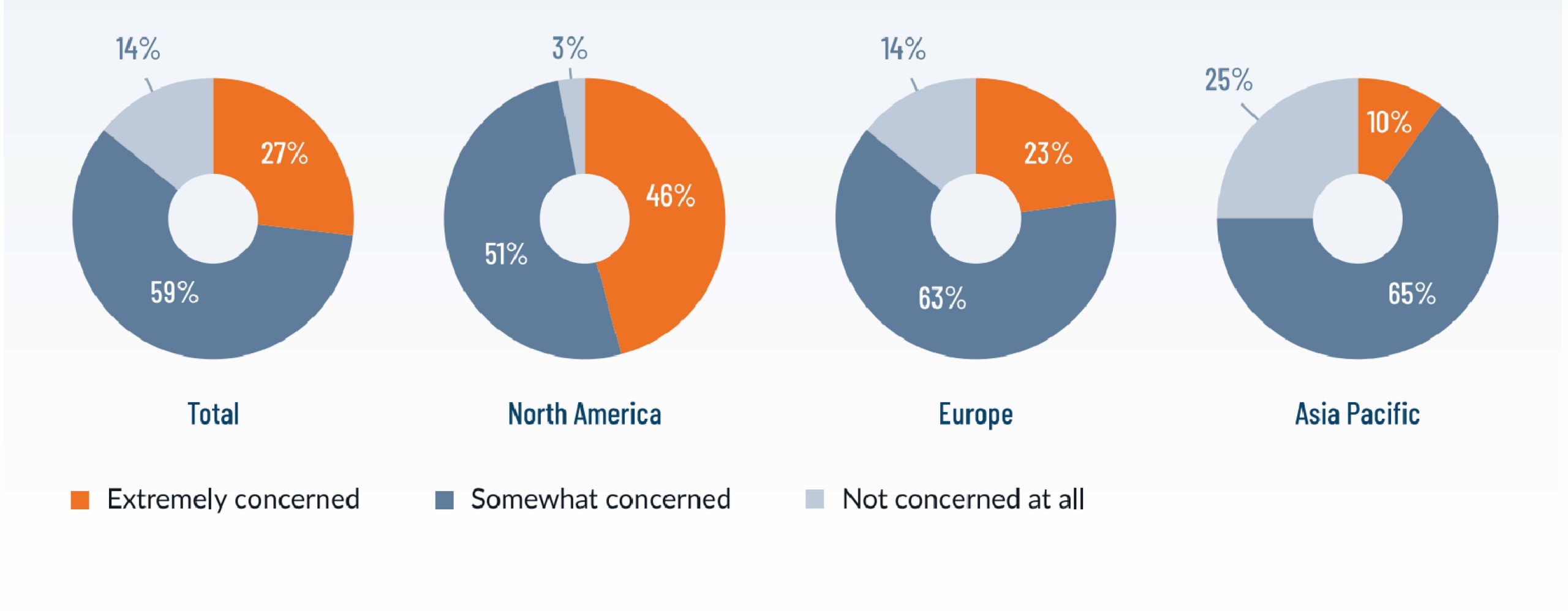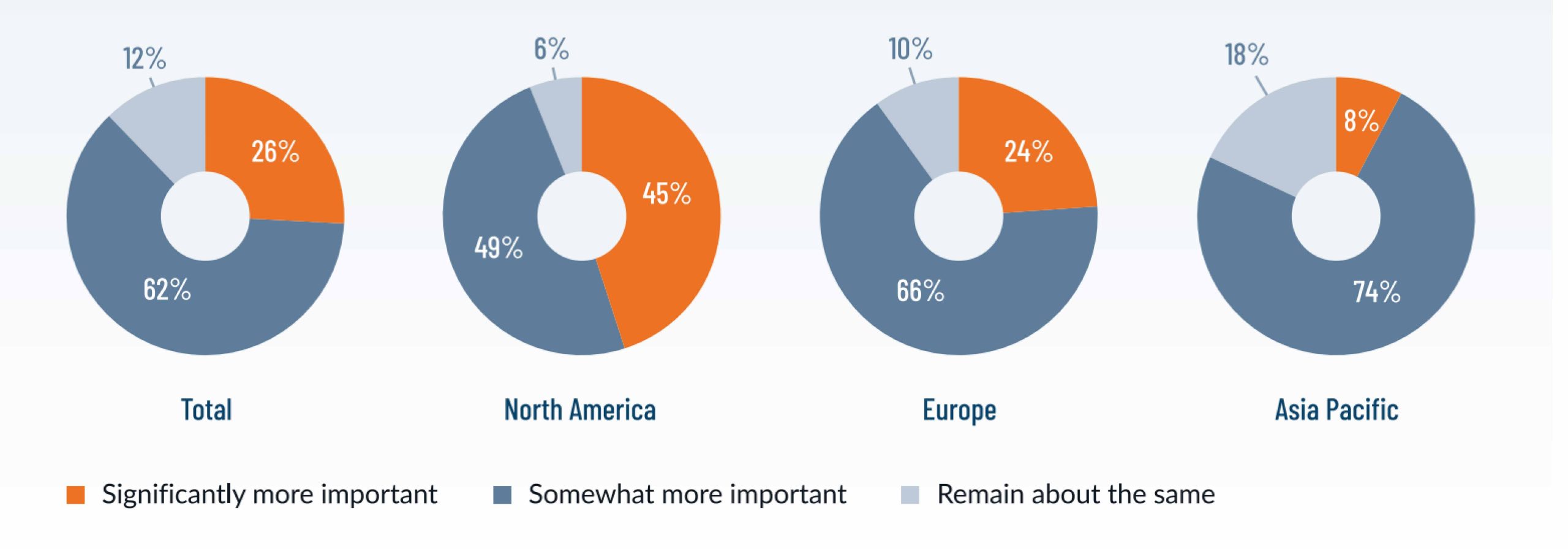A survey conducted by Protiviti and the Oxford Global Centre on Healthcare and Urbanisation at Kellogg College reveals that 74% of global business executives believe digital and emerging technologies will increase the size of the workforce by 2032 — an important counterpoint to a popular narrative that machines and automation will take workers’ jobs away. What’s more, an even larger number of executives (88%) are certain technologies like AI, machine learning, autonomous robots and systems integration will transform their businesses in the next 10 years, and 86% are concerned that workers skilled in these technologies will be in short supply. These are eye-opening statistics, for sure.
For a company like yours, to what extent are you concerned there will be a shortage of workers with the required capabilities in 10 years’ time?
Compared to today, how important will artificial intelligence be for a radical transformation of a company like yours in 10 years’ time?
Retention and loyalty
VISION by Protiviti partnered with Oxford on this survey as part of our Future of Work theme in an effort to gauge where global executives see the biggest shifts happening when it comes to how, when and where we will work in 2030 and beyond.
In addition to technology’s game-changing currents, executives expressed concern about talent retention and the Great Resignation. Turnover remains a top concern for 83%, though somewhat contradictory, 84% of executives globally (and 95% in North America) think employee loyalty will increase over the next decade.
“As emerging technology changes the way people work, organizations need to focus on upskilling their employees and operational efficiency to achieve the levels of loyalty and retention they expect,” said Fran Maxwell, Managing Director and Leader of the Workforce and Organizational Transformation practice at Protiviti.
Diving deeper with the Oxford professor
I interviewed David Howard, an associate professor at the University of Oxford and co-director of the Global Centre on Healthcare and Urbanisation at Kellogg College, Oxford, on his take on the results. He spoke about regional differences — for example, views on the role of quantum computing and the standard work week differ vastly between North America and APAC executives, and other surprising findings. You can watch our interview here. To download the full survey, subscribe to the VISION by Protiviti newsletter.





Add comment